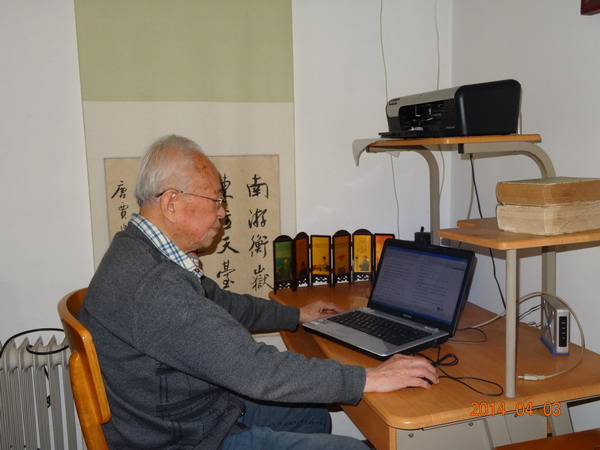Pashto express
|
Che Hongcai has worked on the Pashto-Chinese dictionary for 35 years even though the publisher didn't remember commissioning the project. Wang Huoyan / For China Daily |
With the aid of one of his students, Song Qiangmin, and a former classmate in Kabul University, Zhang Min, Che embarked on the task that he thought he could finish in about two years. He had language proficiency, determination and rich source materials.
While a Pashto-Russian dictionary, with its Russian part being translated into Chinese, served as the "great model", seven other Pashto-related dictionaries given by Mohammad Nawaz Tair, a Pashto language scholar in Pakistan, made "erudite contributions", Che says.
As there was no funding for the project, Che had to borrow a Pashto typewriter and asked for free extra paper from a printing plant to make cards documenting entries.
Each day, Che and his partners would work on the tome in a small office, with all the reference dictionaries open on the only desk.
Che appreciated the unique chance to publish the dictionary, considering that Pashto is a little-known language in the country. To guarantee accuracy, every definition would be crosschecked with a series of dictionaries, such as a Pashto-Persian dictionary and a Persian-English dictionary.
Che also consulted with some Afghan experts working with China Radio International for helping fact-check history and customs to ensure example sentences were correct.
But soon, Che realized he might not finish as quickly as he'd expected.



















